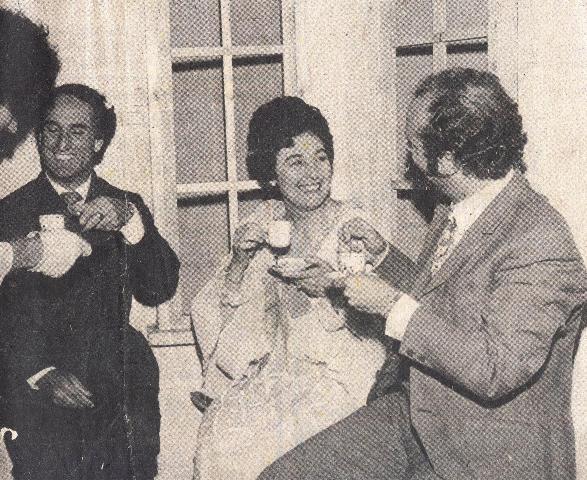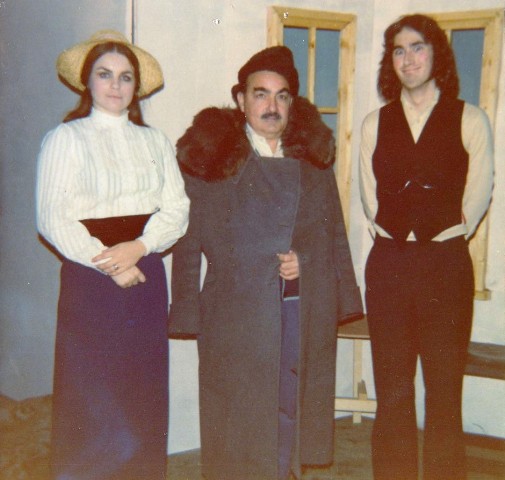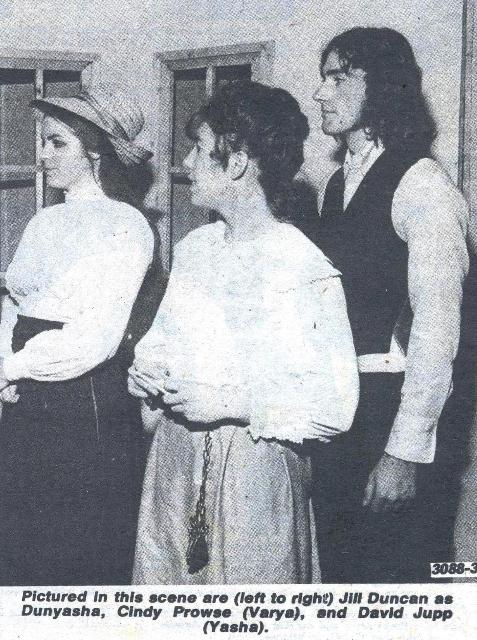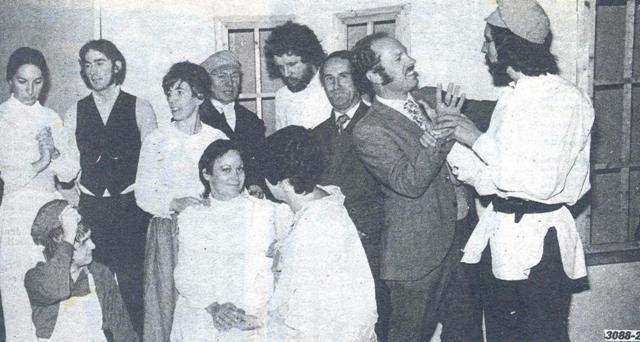The Bench Production
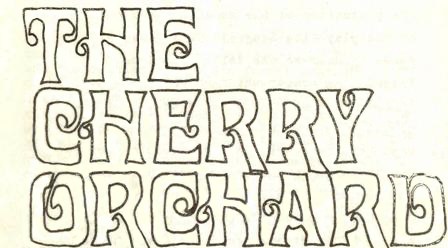
This play was staged under Bench Theatre's original company name of Theatre Union, at their theatre in West Street. It was actually the building in West Street, Havant where most of the Company's early plays were staged, which was called the Bench Theatre (after its prior use as a magistrates' court). The company's name was changed gradually by word of mouth and general usage between the years 1973 - 1977 when reviewers, and then members themselves, gradually stopped referring to Theatre Union and started calling the company of players 'Bench Theatre'. The new Company name of Bench Theatre was adopted in to all the promotional literature after they moved from the old theatre (which had been their home for nearly 7 years) in to the Old Town Hall building in East Street.
Bench Theatre staged this play again in 1996 at Havant Arts Centre.
Cast
| Mrs Lyuba Ranevsky | Eve Moore |
| Anya | Jill Morris |
| Varya | Cindy Prowse |
| Leonid Gayev | Derek Cusdin |
| Yermolay Lopakbin | Ian Nelson |
| Peter Trofimov | Peter Holding |
| Boris Simenov-Pischik | David Spackman |
| Charlotte | Mo Burness |
| Simon Yepikhodov | Laurie Noble |
| Dunyasha | Jill Duncan |
| Firs | Peter Duncan |
| Yasha | David Jupp |
| Passer-by | Tim Mahoney |
| Station master | Tim Atkinson |
| Post Office Clerk | Brian Sweatman |
| Guests and Servants | Jan Lille Roger Matthews Robbie Cattermole |
Crew
| Director | John Scadding |
| Stage Manager | Brian Sweatman |
| House Manager | Sheila Spackman |
| Lighting | Hazel Rhymes |
| Costumes | Angela Mansfield June Jaques |
| Makeup | Sharon Rose |
| Production Assistant | Hazel Rhymes |
| Set Designer | Ed Sawyer |
| Publicity | Ingrid and Peter Corrigan |
Director's Notes
In 1860 millions of Russian serfs were given their freedom by government decree. Firs was one of them Lopakin's father another. Chekhov's grandfather had previously bought himself free. The freeing of the serfs was known as the Great Emancipation. It was hoped that this event would be the start of a great move to liberalise the country and to help spread happiness amongst a larger number of Russians. These hopes were thwarted by the 1880s when the Czar was assassinated.
By the time of 'The Cherry Orchard', which was written and set in 1904, repression was worse than ever and Chekhov himself had his play censored in several scenes. There seemed little hope of an immediate change for the better in Russian life. Ironically enough, directly after Chekhov's death in 1904 the first great modern uprising occurred and the Russian revolution was only 12 years away. Chekhov's play marks the passing of an era.
John Scadding
Reviews
The NewsJ.B.
Team work on stage
Havant Theatre Union's production of 'The Cherry Orchard', which opened at the Bench Theatre last night and continues until Saturday, is a team effort. Written by Chekhov for a company of actors rather than principals, it is a play of atmosphere instead of action and relies more on the relationships between characters in pre-revolutionary Russian society for the development of the plot. They are all waiting for their future, caught in limbo between a secure and nostalgic past and an uncertain destiny.
While the play is not designed for individual actors, the characters of Mrs Ranevsky, her daughter Anya, Leonid Gayev, and student Trofimov give Eve Moore, Jill Morris, Derek Cusdin and Peter Holding the opportunity to extend themselves. In Russian in 1904 this was considered a tragi-comedy. In Havant in 1975 - it is not particularly funny and one feels insufficient involvement with the characters to be touched by the tragedy. Whether this is a criticism of the play or the production must be a matter of personal judgement.
The News, 14th October 1975
